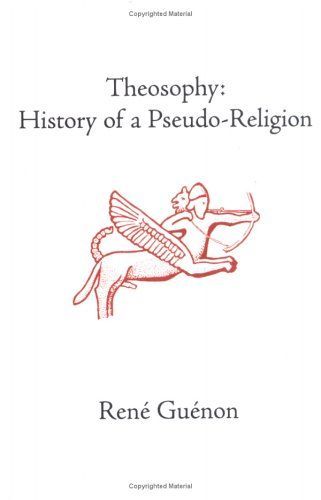
Theosophy History of a Pseudo-religion
Many readers of Guénon's later doctrinal works have longed to hear the tale of his earlier entanglement, and disentanglement, from the luxuriant undergrowth of so-called esoteric societies in late nineteenth-century Paris and elsewhere. The present work documents in excoriating detail Guénon's findings on what did, and did not, lie behind the Theosophical Society founded by Madame Blavatsky and Colonel Olcott in 1875. Much further information has of course come to light during the 80 years since this book was written, but it has never been superseded as a fascinating record of the path of a master metaphysician through this maze. A sampling of chapter titles will convey a sense of the depth of this remarkable work: 'Madame Blavatsky's Antecedents', 'The Theosophical Society and Rosicrucianism', 'The Question of the Mahatmas', 'The Society for Psychical Research', 'Esoteric Buddhism', 'Esoteric Christianity', 'The Future Messiah', 'The Trials of Alcyone', 'The Anthroposophy of Rudolf Steiner', 'The Order of the Star of the East', 'Theosophy and Freemasonry', 'The Political Role of the Theosophical Society'. A particularly unusual feature is its extensive treatment of the Hermetic Brotherhood of Luxor, which has recently attracted the attention of scholars of the occult. The Collected Works of René Guénon brings together the writings of one of the greatest prophets of our time, whose voice is even more important today than when he was alive. Huston Smith, author of The World's Religions, etc.